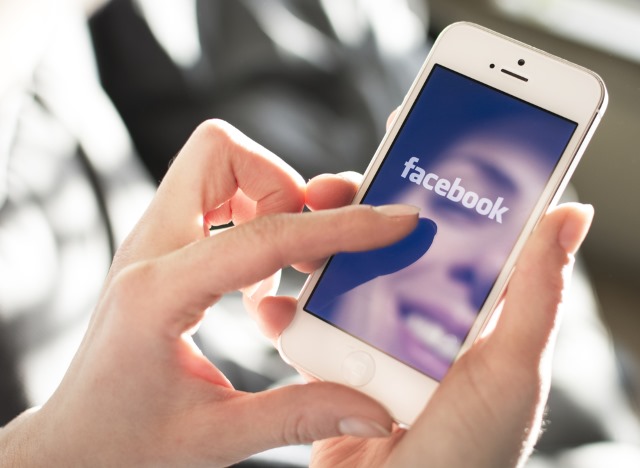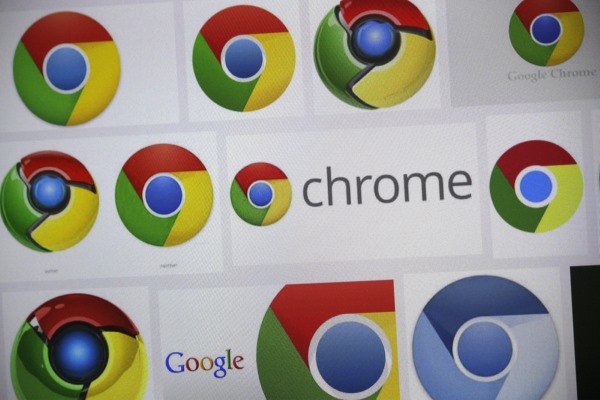
Cloud use could be putting businesses at risk
According to a new study, 69.7 percent of cloud applications do not specify whether the customer keeps ownership of uploaded data, just 8.7 percent commit to not sharing data with third parties, and only 16 percent delete data immediately after contract termination.
All three of these things could leave businesses open to non-compliance files under the EU's GDPR requirements. The report from cloud security company Skyhigh Networks analyses real life cloud usage data from 30 million cloud users worldwide to assess the risk the cloud presents.

Legal mass surveillance: Investigatory Powers Bill could become law by the end of the year
The highly controversial Investigatory Powers Bill could be enshrined into UK law by the end of the year after it was passed by both houses of Parliament. Strongly opposed by privacy campaigners, the bill -- dubbed the Snooper's Charter -- will mean a full record of every UK internet users' browsing history is accessible by the government.
All that remains is for the bill to receive royal assent -- essentially a formality -- and it will then become the Investigatory Powers Act. It means the UK will have one of the most wide-ranging, all-encompassing, and privacy-invading mass surveillance programs in the world.

Facebook's privacy-invading WhatsApp user data dipping ends in Europe
Facebook has stopped using data collected from WhatsApp users to customize ads in Europe. The move comes after the practice was banned in Germany, and after the UK's Information Commissioner announced an investigation.
The social networking giant had already agreed to stop using WhatsApp data from users in the UK, but this has now been extended on a Europe-wide basis. Last month Facebook was on the receiving end of criticism from the Article 29 Working Party who complained about the invasion of users' privacy.

Betternet is a simple, free and 'unlimited' VPN
Connecting to a virtual private network can shield your IP, maintain your privacy on insecure wireless hotspots and perhaps help you access websites you couldn’t reach normally.
VPN’s usually require paying a chunky subscription fee, but Betternet promises an unlimited service for absolutely nothing at all.

Protect your privacy with SafeErase Professional 11
O&O Software has released the latest version of its commercial secure-deleting privacy protector, SafeErase Professional 11.
The interface has been revamped for ease of use, while the core engine is even faster at wiping every trace of your confidential files.

Android backdoor found sending personal information from US users to China
Mobile security firm Kryptowire has discovered a backdoor in several Android smartphones sold in the US. The company says that the firmware collected personal data about users without consent, and sent this private information on to Chinese firm Shanghai Adups Technology Company.
Included in the reams of personal data shared to a third party server were the full text of SMS, call histories, and unique device identifiers. In addition to this, an OTA (over the air) update to firmware allowed for the non-consensual installation of apps, user location tracking and keyword monitoring.

Watch Edward Snowden discuss Trump's victory, and privacy implications, in a live Q&A today
It’s fair to say, yesterday’s US election result sent shockwaves around the world. Donald Trump was seen as an outside bet by many people, but now he’s won the race for the White House, the big question, is what will his victory mean for the people, both at home and abroad?
Former NSA contractor turned whistleblower Edward Snowden has a lot to say on government matters, and today in a live Q&A he’ll be opining on how the US election results could affect your privacy, as well as any potential pardon for himself, and answering questions submitted via social media.

China's new cybersecurity law makes things harder for foreign businesses
A new cybersecurity law has been passed in China which will give the country even more control over the Internet and will require foreign companies to store their data locally.
The National People's Congress Standing Committee passed the new law on Monday, causing a great deal of concern amongst human rights groups and foreign businesses. China already limits access to the Internet through its own online security system known in the west as "the Great Firewall" but this new cybersecurity law will allow the country to further censor and control the internet.

Facebook forced to stop using WhatsApp data to deliver targeted ads to users
Threatened with legal action if it failed to do so, Facebook has agreed to stop harvesting data from WhatsApp users and using that data to deliver targeted ads. The move comes weeks after the UK's Information Commissioner announced an investigation into the actions of the social network.
Facebook had already been blocked from doing this in Germany, and now the same restrictions are in place in the UK. With so much public interest in privacy, it is likely that other countries will follow suit in clamping down on Facebook's data collecting activities.

Mozilla pulls Battery Status API from Firefox over privacy concerns
It was supposed to be a feature that allowed more efficient versions of websites to be delivered to people running out of battery power.
But the Battery Status API built into Firefox was also found to be problematic from a privacy point of view after it was discovered that visitors' battery levels could be used to track them online. In response to this the API is being pulled from Firefox.

Admiral Insurance to use algorithms to set insurance prices based on customers' Facebook posts
Facebook, it is said -- much like Big Brother -- is watching you. Privacy groups have long warned about the potential for information shared on the social network to be misused, and now an insurance company is planning to make use of the status updates customers post to determine the type of drivers they are.
The controversial move finds Admiral Insurance using an algorithm to analyze the posts of new drivers in a bid to determine the type of people they are. By linking 'likes', writing style and other factors, Admiral believes the system -- called firstcarquote -- can be used to accurately assess how safe a driver someone is.

Samsung's Note7 exchange booths: Could users' old data be exposed?
When it comes to the exploding batteries on Galaxy Note7 models, Samsung has been lauded for its crisis management approach and how it’s accepted responsibility for the problem. Now setting up exchange booths at airports around the world so users can exchange their Galaxy Note7 phones is yet another example of its exceptional crisis management approach.
But while it’s commendable how swiftly Samsung is taking action to replace the faulty handsets, the company has left one crucial component out of this plan. That is, erasing the data from those Galaxy Note7 devices that are turned in at its exchange booths at airports around the world. There’s no mention of whether the data is being securely and permanently erased from the Galaxy Note7 phones that are taken back at the exchange booths -- and if it’s being done so before they’re handed off to Samsung’s chosen recyclers.

How to disable new tab article suggestions in Chrome 54 for Android
If you've updated Chrome on your Android smartphone to version 54, you may have noticed an annoyance. When you open a new tab, Google has now decided to spam users with "article suggestions". These -- you will be pleased to hear -- can be banished.
There's more than one reason that you might want to get rid of these suggestions, not least of which is that the feature involves Google keeping an eye on the sites you visit to come up with the suggestions. But the feature also replaces the far more useful bookmarks, and this is going to be enough to tip many users over the edge. Here's how to disable article suggestions.

Google's updated privacy policy means personally identifiable ad tracking is now go, go, go!
That Google encroaches on user privacy is not a startling revelation by any stretch of the imagination. But a recent change to the company's Privacy Policy means that information from DoubleClick ads can now be used to identify individuals and track them online.
The changes to the policy have not been hidden -- the details and alterations are visible in an archived copy of the document -- but it has not been advertised either. The implications of the change are huge. Since purchasing DoubleClick back in 2007, Google kept identifiable user data separate from anonymized ad tracking. This is no longer the case.

Amnesty International ranks message apps according to privacy -- Facebook wins!
Despite a desire to be more connected than ever before, people are simultaneously more concerned than ever about their security and privacy. This is certainly true when it comes to messaging tools, and the privacy features offered by a particular app or service can be what sways your decision to use it one way or the other.
Justice group Amnesty International has spent some time analyzing the privacy and encryption found in a number of popular messaging tools and compiled results in a ranked list. The findings make for interesting reading, not least because Facebook is ranked the most highly.
